Achieve more with the A Therapists Guide to the Psychopharmacology of Trauma and Dissociation – Frank G. Anderson course, priced at just Original price was: $149.99.$39.00Current price is: $39.00. on GBESY.biz! Explore our extensive collection of over 60,000 downloadable courses in Health and Medical. We offer professional, self-paced digital education at up to 80% off original rates. Start transforming your expertise now!
Salepage link: At HERE. Archive:
$149.99 $44 – A Therapists Guide to the Psychopharmacology of Trauma and Dissociation – Frank G. Anderson
Let’s face it – treating trauma is hard work and it’s not always clear what needs to be done. Dysregulated nervous systems, co-morbidities, and a myriad of psychotherapeutic and psychopharmacological options often make it difficult to reach the desired goals for your clients.
Even though you may not be a prescriber of medications, it’s essential that you have a thorough understanding of the effects medication has in treating trauma.
Watch world renowned trauma expert Frank Guastella Anderson, MD, in this recording as he guides you through the essentials of Psychopharmacology related to the treatment of Trauma and Dissociation.
Dr. Anderson will teach you how to:
- Integrate psychopharmacological and psychotherapeutic approaches
- Identify positive and negative effects of medication
- Prepare clients for adding medication to their treatments
- Understand the effects of trauma on neurobiological processes
- Assess clients for appropriate medication referrals
Improve your outcomes through the understanding and application of the interplay between medications, psychotherapy and trauma.
- Integrate psychopharmacological and psychotherapeutic approaches in the treatment of trauma and dissociation.
- Identify the positive and potentially negative effects of psychoactive medication interventions related to trauma treatment.
- Prepare clients effectively for the implementation of psychopharmacological adjuncts to psychotherapy.
- Relate the neurobiological effects of trauma to the dysregulation of neurotransmitters and the use of mitigating medications.
- Assess therapeutic indications for appropriate medication referrals.
- Effectively approaching traumatized clients with medication supports
- Classification of the different types of trauma
- Normative responses
- Iatrogenic risks of rapid psychopharmacological treatment
- Introduction to Internal Family Systems (IFS)
- Working with “parts of self” and medication interventions
- Primary types of parts
- Therapists’ role in medications – facilitating compliance
- Indications for medication referrals
- Integrating IFS with medication management
- Video case example – securing parts agreement and clarifying expectations
- Neuroscience and the neurobiology of PTSD
- Neural networks and neural integration
- Fear response circuitry – normal and disrupted function
- Neurotransmitters and medications
- Specific effects of most commonly used medication interventions
- Treating Acute Trauma
- Current psychopharmacological research and new directions
- Negative effects of benzodiazepine use
- Treating PTSD
- Indicated medications and common side effects
- Psychedelic assisted psychotherapy
- Enhancing self-compassion and reducing defenses
- Limitations of current research
- Hormones and PTSD
- Polyvagal theory and Dissociation
- Differentiating ventral and dorsal parasympathetic function
- Treating Dissociation – applications of atypical antipsychotics
- Medications new to the market
- Psychosis, Bipolar Disorder and Trauma – Co-morbidities and Trauma
- Use of PRN medications and scheduling
- Discriminating between biological and emotional symptoms
- Sleep disturbances
- Psychotropics used – effects and side effects
- Attention Deficit Disorder – overlap and medication interaction with PTSD
- Substance abuse and indicated medications
- Depression and co-morbid PTSD
- Star-D study results
- Polypharmacy for PTSD symptomology
- OCD
- Alternative treatments for Trauma
$149.99 $44 – A Therapists Guide to the Psychopharmacology of Trauma and Dissociation – Frank G. Anderson
Invest in endless knowledge with the A Therapists Guide to the Psychopharmacology of Trauma and Dissociation – Frank G. Anderson course at GBESY.biz! Gain lifetime access to premium digital content designed to fuel your professional and personal growth.
- Lifetime Access: Unrestricted, permanent access to your purchased courses.
- Unbeatable Value: Save significantly with prices up to 80% less than direct purchases.
- Protected Payments: Complete your transactions securely.
- Empowering Skills: Learn practical, in-demand skills for immediate application.
- Immediate Download: Access your course content instantly after purchase.
- Any Device, Anywhere: Study on your preferred device with full flexibility.
Discover your next opportunity with GBESY.biz!
![GBesy [GB] GBesy [GB]](https://gbesy.biz/wp-content/uploads/2023/05/gbesy-Logo-full-100.png)
![GBesy [GB] GBesy [GB]](https://www.gbesy.com/wp-content/uploads/2023/05/gbesy-Logo-full-100.png)

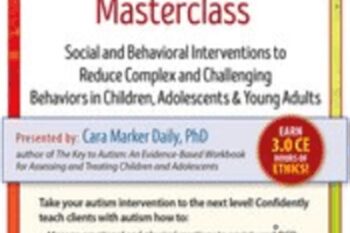

 Purchase this course you will earn
Purchase this course you will earn 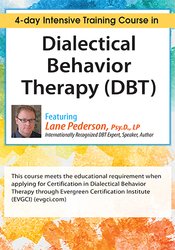


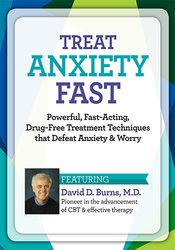
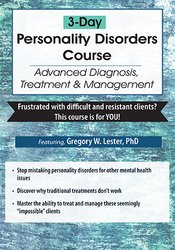
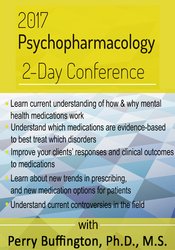
Reviews
There are no reviews yet.